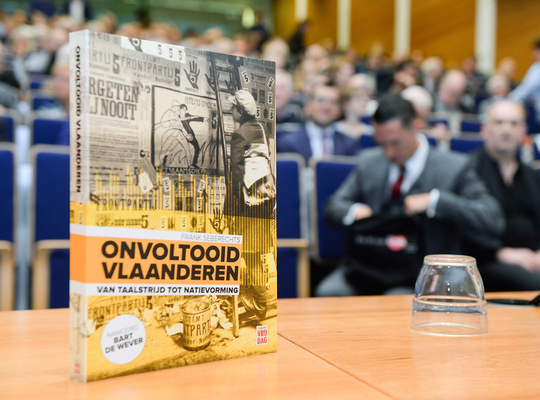You are here
Bart De Wever: “Tensions in Belgium not sustainable”

For N-VA Chairman Bart De Wever, the current tensions present between the North and the South of Belgium cannot be sustained much longer. Whereas the communists of the PVDA/PTB in Wallonia are good for 20% of the vote in elections, which is as much as the PS gets, they struggle to even get their electoral deposits back in Flanders. And a “traditional” state reform will not eliminate these tensions. “A new paradigm shift is becoming urgently necessary: Confederalism If we want to make structural changes, then we have to change the structures. Confederalism is the structural change that this country needs. The basic principle of confederalism is that Flanders and Wallonia are the owners of all powers. They exercise these themselves, but can also make decisions together and manage certain powers together at the confederal level, in both of their interests. This completely reverses the logic. Instead of transferring federal powers to Flanders and Wallonia, these powers can be transferred to the confederal level. Forced cooperation is replaced by voluntary cooperation. Must becomes will. Dismantling from above becomes building up from below. Confederalism is therefore deciding together on what we want to do together. confederalism ,” Bart De Wever said during the official presentation of “Onvoltooid Vlaanderen” (“An Incomplete Flanders”), a history of the Flemish nation-building, for which he wrote the closing essay.
This book, subtitled, “Van taalstrijd tot natievorming” (“From language battle to nation-building”) relates the difficult but successful history of the Flemish movement to give Flemings their legitimate place in Belgium: first as a language group, and later as a people with their own federated entity.
Flanders as a mission
Nation-building is also an important task of the N-VA, Bart De Wever emphasises: “Flanders is a mission, one for us to make it clear to Flemings that Flanders is their trade union in the world.” In this regard, he refers to the self-awareness of the Basques and the Scots, which the Flemish still lack to a certain extent. “Our young people have been raised in, and today live in, a Flemish context. Their whole reference framework is Flemish. However, seeing yourself as a member of a group is not so straight-forward,” Bart De Wever says. For this reason, he wants to highlight the positive aspects of Flemish identity with low-threshold campaigns like distributing Flanders-themed caps during the Tour of Flanders. “Flemings still see that identity too much as part of a political debate or associate it with party politics or even extremism. We need to change that.”
Political-economic obstacles
In his closing essay Bart De Wever posits that Flemish nationalism is no longer driven by a historical grudge, but by the hopes of a community that sees itself as a political entity. However, it is currently stifled by a messy political system that lacks transparency. And as if that weren’t bad enough, it is also impeded by all kinds of bolts and locks and mechanisms that were once designed to protect communities in Belgium, but which today primarily form a barrier to the most basic democratic rights. “Perhaps we are no longer being stifled in our social and cultural ascent, but when it comes to our democratic rights and our economic development the situation has only become worse. In one state reform after another, the social-economic levers have remained in the firm grasp of federal hands,” Bart De Wever laments.
Long-term strategy
“In the meantime, the once unitary Belgian state has been fully hollowed out into a total of two democracies. And the sixth state reform only served to increase all the problems cited,” Bart De Wever confirms. So for him, there is no point whatsoever in a new state reform. “We must ensure that the French speakers themselves become the requesting party of a new paradigm shift, so that they take the step together with us towards a confederal state. For this purpose, we must implement a social-economic recovery policy and use the powers of the federal level. Because no matter which way you look at it, we will need a two-thirds majority, with a majority in every language group,” Bart De Wever concludes.

